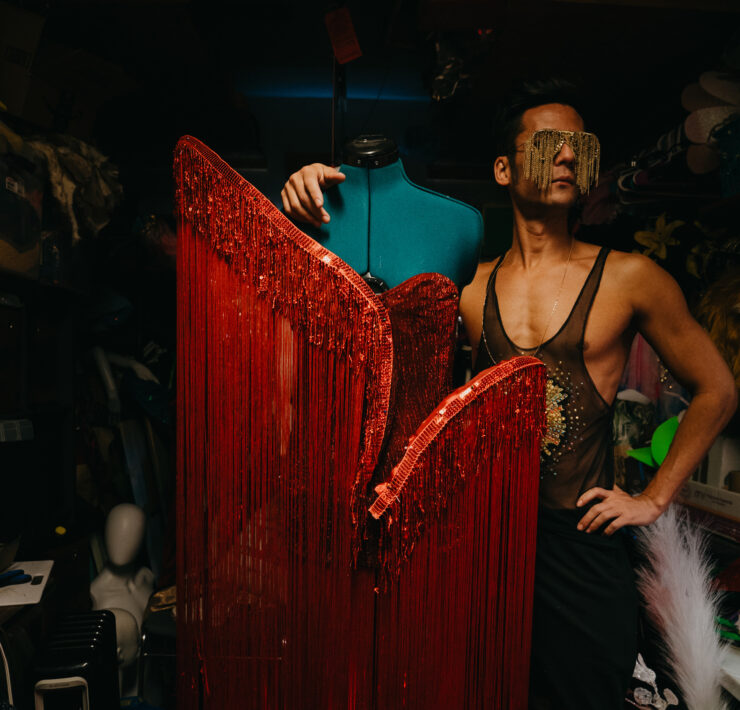Improving HIV Outreach to the Latinx Community

If you haven’t already discovered it, My Health Agenda is an eye-opening look into the lives of Latinx individuals from the LGBTQ community. While not directly focusing on living as an HIV+ person, this web channel offers in-depth personal accounts describing the intersectionality between being Latinx, LGBTQ, and health.
Nutrition, of course, plays a key role in optimizing health. For a number of reasons, optimizing nutrition in this specific community can be difficult. I had the opportunity to virtually speak with My Health Agenda content contributor Dr. Ariel Ourian and Creator/Director Andres Palencia to discuss this intersectionality with the intention of improving awareness and outreach to this community.
One of the biggest barriers to receiving appropriate healthcare for Latinx people living with HIV is the stigma associated with the diagnosis—which is not necessarily specific to those who are Latinx. However, this stigma creates an environment for those who are Latinx which deters many from within this community from receiving necessary medical care.
Empowerment is essential in helping these folks overcome this stigma and get the care they need. On top of this, studies have shown that patients that belong to a minority race or ethnicity, including the Latinx population, are more likely to discontinue or be inconsistent with their care due to the increased likelihood of facing healthcare discrimination, such as reduced access to care and being under/uninsured.
The “face” of HIV has changed dramatically in the past 30 years, with significant advancements in research, treatment, and overall care. It is uncommon for a person living today with HIV to also experience malnutrition and unintentional weight loss, slowly withering away in front of their friends and family.
Now, one of the biggest nutrition-related issues in the Latinx community among those who are HIV+ is type 2 diabetes. Many HIV medications may exacerbate diabetes by gradually increasing blood sugar levels the longer the medication is taken. We already know that Black and Brown communities have a disproportionately high rate of type 2 diabetes compared to those who are white.
Latinx communities specifically are more likely to have not received nutrition education due to poor access to community health centers and a general lack of bilingual registered dietitians. Because of this, we see many folks with poor eating patterns, high intake of sodas and juices, and other diseases that increase the risk of diabetes (such as high blood pressure and heart disease).
My Health Agenda strives to help people from this community get the support and empowerment they need to make positive lifestyle changes and receive adequate medical care. The LGBTQ population unfortunately faces harassment, social stigma, discrimination, and many other challenges.
As a result of these issues, the LGBTQ population is at an increased risk for various behavioral health issues, including food insecurity and drug and alcohol addiction. Studies have shown that LGBTQ adults are twice as likely as their heterosexual counterparts to use drugs and suffer from a substance abuse disorder.
The Latinx community is at an even higher risk. This is an unfortunate vicious cycle, as these behavioral issues lead to other health issues. The important thing to know is that nobody should ever feel alone in their struggle, and that behavioral and mental health services are available.
The goal of My Health Agenda is to elevate those who have persevered despite these challenges. Both Dr. Ourian and Andres note that many within the Latinx community find themselves subject to the toxic patterns of misogyny and homophobia from their own culture while also facing marginalization and discrimination from the outside. They say it’s important to keep in mind that existence is heroism when you’re LGBTQ Latinx, and when you shine a light on heroes from the community, you’re showing a realistic path for how people can thrive.
The biggest pieces of advice I learned from speaking with Dr. Ourian and Andres is around overcoming adversity. Physicians who work in HIV+ community health centers are there to meet the needs of Latinx individuals who are HIV+ in a stigma free zone. My Health Agenda exists to empower leaders from within the community to engage efforts to inform Latinx people about health, negative stigmas, and the benefits of seeking medical care early into diagnosis. Important projects like My Health Agenda are so impactful in making a difference in the lives of LGBTQ Latinx folks because they are driven by the undeniably powerful force of queer creativity.
To learn more about My Health Agenda, go to: www.latv.com/series/myhealthagenda.










